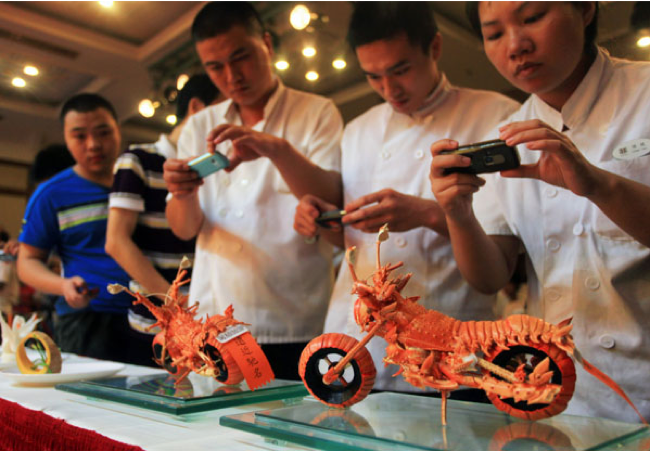our favorite finds from the front lines of food
The house that Champagne built: a Russian man has built a house made almost entirely of Champagne bottles in the city of Chelyabinsk, where it is known as the “Palace of Oz.” It took 12,000 bottles, so you'd better start drinking if you want one of your own.(Drinks Business)
In hard new this week, the seafood world has been called out in an new AP Investigation: Are slaves catching the fish you buy? (AP)
Is the Strawberry Field The Next Farmworkers’ Rights Battleground? It's not just hard work, it's literaly poison: "Roman Pinal, the Southern California regional director for the United Farm Workers (UFW), says strawberry pickers are more susceptible to pesticide exposure than the average farmworker because the fields are more densely planted than other crops, meaning chemicals are being sprayed or are drifting closer to farmworkers. What’s more, compared to crops that are harvested once a season, strawberry plants produce fruit every two days—creating a situation where chemical management and harvesting occur “right on top” of each other, he says." (Civil Eats)
New waves of distilling have been a boost for rural areas, and that was the case in the 1920s and 30s too. Old Time Farm Crime: The Hooch Farmers of Templeton "Templeton Rye, “the good stuff,” was a hot commodity in Prohibition era Chicago, Kansas City and New York and its popularity helped save many a family farm in rural Northwest Iowa where the booze was illegally distilled by desperate farmers during the lean years of the 1920s and early-30s." (Modern Farmer)
'New Nordic' goes to the bar with Icelandic Birch Cocktails. (Huffington Post)
A Belgian chef Is making summer in a bottle with gin flavored with lobster. (Munchies)
Now Marriott has a magazine. You could too. Don't worry about all this new lingo. "Content" = stuff worth looking at that makes people like you. “Content marketing is a marathon; it’s not a sprint, said Lisa LaCour, vp of global marketing at content-recommendation platform Outbrain." (Digiday)






